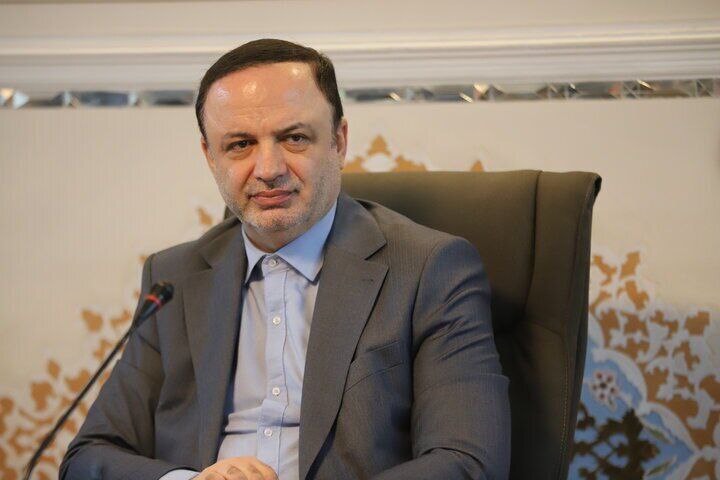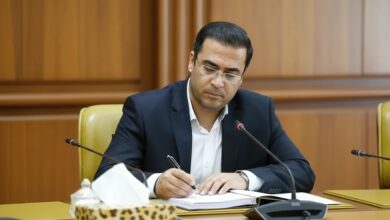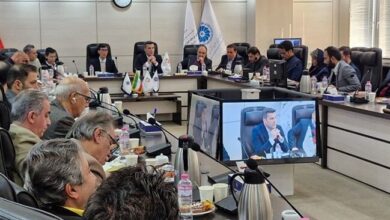
Enhancing Transit Infrastructure for a Thriving Maritime Economy
The Secretary of the Supreme Council of Free Commercial, Industrial, and Special Economic Zones highlighted the creation of transit infrastructure, particularly hybrid transit, as a key topic in the sea-oriented economy. He stated, “Fortunately, Iran, with its natural resources and geographical location, can generate substantial income by allocating resources and building infrastructure.”
According to RooykardKish News Network, Dr. Reza Masrour emphasized the necessity of allocating funds for the transit infrastructure of free zones to generate foreign exchange for the country during the conference titled “Sea-Based Economy: Driving of Sustainable Economic Growth with Emphasis on the Private Sector,” held in Kish.
The Secretary of the High Council of Free Zones noted two crucial factors for development in countries, which are also present in Iran, according to the theory of resource development and access to the sea. He identified management as a significant challenge in leveraging these capacities and added, “The wise utilization of resources is our main issue; effective governance is a concern that has been underscored by the Supreme Leader Ayatollah Khamenei.”
Reza Masrour stated that currently, 10% of the GDP is derived from the sea, yet only 5% of the country’s coastal capacity is utilized. This indicates a need to focus on management issues, and efforts are being made to enhance the country’s economy by addressing these matters in the free zones.
The Secretary of the Supreme Council of Commercial, Industrial, and Special Economic Free Zones remarked that free zones are strategically located along the North-South Corridor and the China Corridor. Goods from Shanghai reach Aktau and Anzali ports and continue to Jolfa. He noted that if the construction of a 100 km corridor from Cheshme Soraya to Turkey is completed, Iran could significantly benefit economically.
Masrour added that it is essential to allocate funds to these sectors, as infrastructure development must be financed to earn foreign currency for the country. He also mentioned the Nostrak route, a shorter alternative to the Suez Canal that connects rail transport to Chabahar port, which will help generate wealth for Iran.
Masrour asserted that many non-productive assets in the country should be transformed into productive ones through strategic planning. In the free zones, efforts are underway to establish effective governance by converting non-productive assets into productive assets.
The Secretary of the High Council of Free Zones announced a shift in the income model of free zones from land sales to productive assets and indicated that financing through bond issuance and leveraging the capacities of each zone are among various revenue methods being considered. The coastal Azadi areas possess unique potential in energy and banking sectors.
In conclusion, Dr. Reza Masrour emphasized that to succeed in the current regional conditions, free zones must foster motivation by defining competitive advantages. He added, “We are fully prepared to support investors interested in operating in free zones and welcome their participation.”
The conference “Sea-Oriented Economy: Driving Sustainable Economic Growth with Emphasis on the Private Sector” concluded with notable attendance.
The conference titled “Sea-Oriented Economy: Driving Sustainable Economic Growth with Emphasis on the Private Sector” featured Aqamohammadi, the head of the economic group of the Supreme Leader’s Office; Rahim Sarhangi, the CEO of the Kish Free Zone Organization; Ezzatullah Mohammadi, the chairman of the board of directors and CEO of the Development and Management Company for Kish Ports and Airports; and a group of senior managers from various fields. The conference aimed to identify and exploit the vast economic capacities available along the coast, offshore, and in open waters, with a focus on the development of new coastal cities, shipbuilding, offshore industries, energy, fisheries, the digital economy, the financial sector, tourism, investment opportunities, and economic infrastructure development. The event was hosted by the Kish Free Zone.



